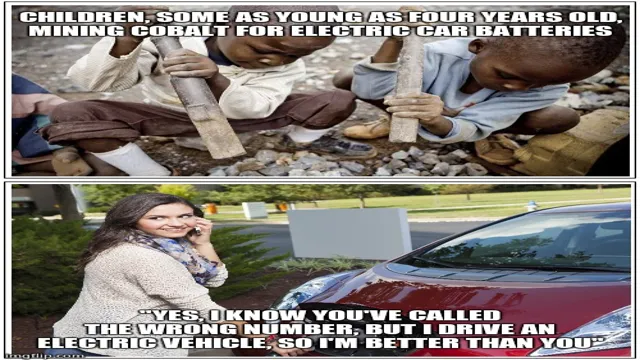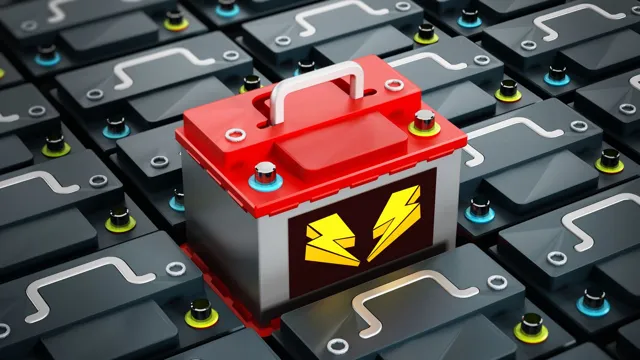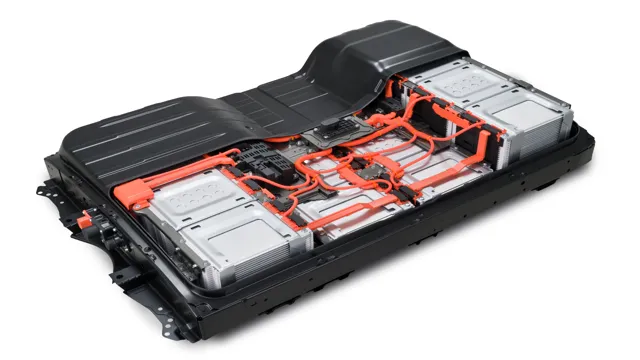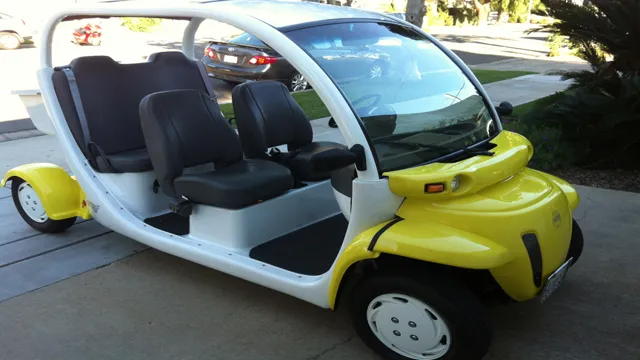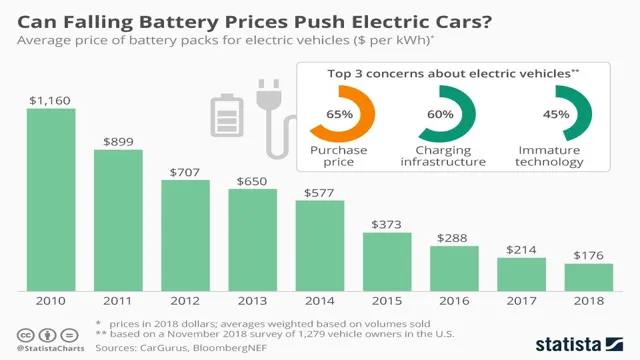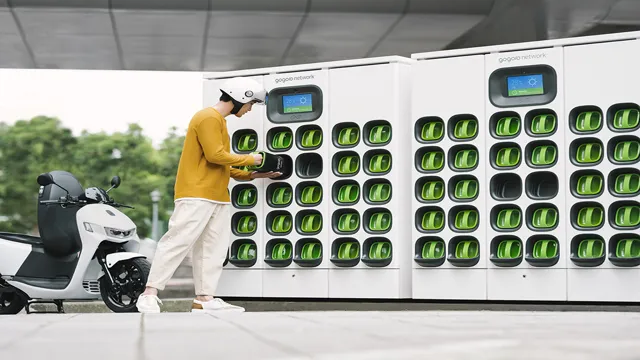Exploring the Dark Side of Electric Cars: The Shocking Truth about Child Labor induced by Cobalt Mining
Electric cars are becoming a norm worldwide for their eco-friendly and sustainable features. They offer an excellent solution to mitigate climate change and reduce carbon footprint. However, amidst the rising popularity of electric cars, there is a growing concern about the source of their power – electric car batteries.
Did you know that these batteries, more specifically, Cobalt, have a dark reality behind their production? Yes, you read that right! The mining and production of Cobalt, which is a crucial element for electric car batteries, involve dangerous and unethical practices that harm both human lives and the environment. In this blog post, we will uncover the dark reality of electric car batteries Cobalt and why it’s high time we take action towards sustainable energy practices.
What is Colbalt?
When we think of electric cars, we tend to focus on the benefits they bring, such as zero emissions and reduced fuel costs. However, there is a darker side to the production of electric car batteries. The mining of cobalt, a key component in these batteries, is often associated with child labor and poor working conditions.
Cobalt is primarily mined in the Democratic Republic of Congo, where hundreds of thousands of children work in mines to extract the mineral. These children are often subjected to dangerous working conditions and long hours, putting their health and safety at risk. As consumers, it’s important that we are aware of the impacts of our choices, and take steps to support ethical and sustainable practices in the production of electric car batteries.
By doing so, we can play a role in reducing child labor and promoting human rights around the world.
A brief introduction to the metal
Cobalt is a chemical element with the symbol Co and atomic number 2 It is a hard, silver-white metal with magnetic properties that make it useful in many industrial applications. Cobalt can be found naturally in the earth’s crust, but it is typically produced as a byproduct of copper or nickel mining.
One of the primary uses of cobalt is in the production of rechargeable batteries, such as those used in electric vehicles and portable electronics. It is also used in the production of alloys, such as those found in aircraft engines and gas turbines. Additionally, cobalt is used in the production of catalysts for chemical reactions.
While cobalt has many practical applications, it is also used in jewelry-making due to its attractive coloring and durability. Overall, cobalt is a versatile metal with a wide range of industrial and commercial uses.
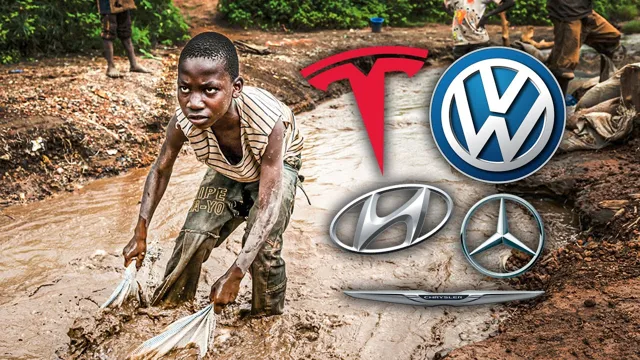
History of colbalt use in electric car batteries
What is Cobalt? Cobalt is a bluish-gray metal that is found naturally in the earth’s crust. It has been used for millennia for jewelry, pigments, and medicinal purposes, but in recent years its most common application has been in batteries. Specifically, cobalt is a vital component in the lithium-ion batteries that power electric vehicles.
Why is cobalt so important? Because it is extremely efficient at conducting electricity and helping to regulate the flow of current in these batteries. However, the growing demand for electric vehicles has put a strain on global cobalt supplies. Additionally, concerns over unethical mining practices and the environmental impact of cobalt mining have led to some efforts to reduce or eliminate the use of cobalt in EV batteries.
Despite these challenges, cobalt remains an essential part of the modern electric vehicle industry, and efforts are underway to find more sustainable sources of the metal.
The Connection to Child Labor
The growing demand for electric cars as a more sustainable mode of transportation has led to an increase in the production of electric car batteries. However, the production process of these batteries involves the use of cobalt, a mineral that is predominantly mined in the Democratic Republic of Congo (DRC). In the DRC, child labor is still prevalent in the mining industry, with over 40,000 children estimated to be working in cobalt mines.
These children are subjected to harsh work conditions and are often exposed to dangerous chemicals that can have detrimental effects on their health. Sadly, the increase in demand for electric car batteries has only served to exacerbate this issue. Manufacturers must take action to ensure that they are sourcing their cobalt ethically and not contributing to this ongoing tragedy.
Consumers can also play their part by supporting companies that are committed to responsible sourcing and advocating for change at the governmental level. Let’s work together to create a more sustainable and ethical future for the electric car industry.
The role of child labor in colbalt mining
Child labor is a significant issue in the cobalt mining industry. In many Democratic Republic of Congo (DRC) mines, children as young as seven years old are working long hours in dangerous conditions, earning a fraction of what adult workers make. These children are often forced to work to help their families survive, and they are robbed of their childhood, education, and future prospects.
The demand for cobalt, which is a crucial component in batteries used to power electronic devices such as smartphones and electric cars, has led to an increase in child labor in cobalt mining. As consumers, we have a responsibility to demand ethical and sustainable mining practices and to support companies that source their cobalt from mines that do not use child labor.
Impact on children and communities in cobalt mining areas
One of the major impacts of cobalt mining on children and communities is the issue of child labor. Sadly, child labor is a common occurrence in cobalt mines, and children are often forced to work long hours in hazardous conditions. They are made to carry heavy loads, work in underground mines, and exposed to dangerous chemicals, which can negatively affect their health and development.
The majority of these children are from impoverished households, and their families rely on them for income. This perpetuates a cycle of poverty, as the child labor prevents them from receiving education and having opportunities to attain better-paying and less hazardous jobs. Governments and companies must prioritize the eradication of child labor and investing in communities to provide safe and fair employment opportunities for adults.
It’s essential to ensure that children have access to education, proper healthcare, and a safe environment to grow and thrive. We cannot continue to allow children’s futures to be jeopardized in the pursuit of profit.
Efforts to combat child labor in colbalt mining
The issue of child labor in cobalt mining has been a major concern for many individuals and organizations. Cobalt, a mineral in high demand for the production of batteries in electronic devices, is mined largely in the Democratic Republic of Congo (DRC). Unfortunately, the cobalt mining industry in the DRC is rife with cases of child labor, with children working in hazardous conditions for long hours with little pay.
The use of child labor in this sector not only violates international labor laws, but it also endangers the welfare of these children and deprives them of their right to an education. To combat this issue, various efforts have been made, including advocacy for responsible sourcing of cobalt, improving working conditions, and promoting education in mining communities. However, more needs to be done to ensure that these efforts lead to concrete results and that child labor in cobalt mining becomes a thing of the past.
What Can Consumers Do?
As consumers, we have the power to influence the demand for electric car batteries. The growing awareness of child labor in cobalt mining has led some car manufacturers to take action and implement ethical sourcing policies. However, we can also do our part by researching the origins of the products we purchase and choosing to support companies that prioritize ethical practices.
This could mean investing in electric cars that use alternative materials or supporting businesses that have committed to sustainable and fair sourcing practices. Ultimately, it is up to us to demand accountability from companies and work towards a more responsible supply chain that is fair for all involved. By doing so, we can help reduce the demand for cobalt mined by child labor and create a more just and equitable society for everyone.
Ethical considerations for electric car owners
When it comes to ethical considerations for electric car owners, there are certainly a lot of factors to keep in mind. But what can consumers do to make sure they are making ethical choices as electric car owners? One of the most important things is to investigate where your electricity is coming from. Are you using a provider that relies heavily on fossil fuels, or do they use renewable energy sources like solar and wind power? By opting for the latter, you can ensure that your electric car is actually helping the environment instead of just shifting the pollution from your vehicle to the power grid.
It’s also important to consider the full lifecycle of your car, from production to disposal. Look for companies that prioritize sustainable and ethical practices in their manufacturing and recycling processes. Finally, don’t forget about the human cost of your electric car – is it made in a sweatshop or with fair labor practices? By being thoughtful and conscientious about these choices, consumers can help make electric cars a truly ethical option.
Eco-friendly alternatives to traditional electric cars
As consumers, we have the power to make a significant impact on the environment by choosing eco-friendly alternatives to traditional electric cars. One option is to consider a hybrid car, which runs on both electric and gasoline power. Hybrid cars are more fuel-efficient and emit fewer pollutants than traditional gasoline-powered cars.
Another option is to opt for an electric bike or scooter, which require far less energy than larger vehicles and can be charged using solar power. Additionally, walking or cycling short distances instead of driving can greatly reduce carbon emissions and improve our overall health. Every small change we make can have a positive impact on our environment, and the switch to eco-friendly transportation is a great place to start.
Let’s all do our part and make conscious choices to reduce our carbon footprint.
Conclusion
In conclusion, the pursuit of eco-friendly technology must not come at the cost of exploiting vulnerable populations. The dark reality of child labor in the cobalt mining industry is a stain on the efforts towards sustainable transportation. However, awareness and advocacy can bring about change and pave the way for ethical sourcing of minerals, ensuring a brighter and more equitable future for all.
“
FAQs
What is the link between child labor and electric car batteries?
Many electric car batteries contain cobalt, which is often mined under harsh and unsafe conditions by children in countries like the Democratic Republic of Congo.
What are the negative effects of child labor in cobalt mining on children?
Children working in cobalt mines may suffer physical injuries, health problems from exposure to toxic chemicals, and miss out on education.
How can consumers ensure they are not contributing to child labor in cobalt mining?
Consumers can research the ethical sourcing policies of car manufacturers and choose products that use responsibly sourced cobalt.
What are some international efforts to combat child labor in cobalt mining?
Organizations such as the Responsible Cobalt Initiative and the United Nations are working to improve conditions for cobalt miners and eliminate child labor.
